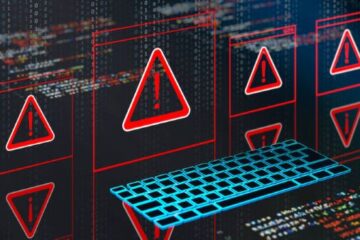Digital Security
Are cybersecurity awareness campaigns really enough to keep us safe online?
01 Oct 2024
•
,
3 min. read

Hey there, as we step into October, you’re probably bracing yourself for the annual flood of cybersecurity tips and tricks flooding your news feeds. But here’s the real question – do these tips actually make a difference in keeping our online world secure? Let’s dive in and find out.
So, here’s the deal – sure, we’ve been hearing the same advice for years now: use strong passwords, enable multi-factor authentication, steer clear of phishing links. But let’s be real, is this enough to combat the ever-evolving cybersecurity threats we face today and in the future? It might be time to shake things up and admit that just giving advice isn’t cutting it anymore.
Time for a Change
After two decades of preaching the same gospel, maybe it’s time for a more radical approach. Alongside dishing out advice, maybe it’s time for some tough love in the form of legislation and enforcement of better cybersecurity practices, especially when it comes to protecting our personal data. I know, I know, regulations aren’t always the most popular solution, but hey, we’re not making progress fast enough. Take multi-factor authentication, for example – why isn’t it a default setting on every platform by now?
Picture this – next year’s Cybersecurity Awareness Month could take a whole new direction if every company handling personal data was mandated to have MFA enabled by default. Accessibility concerns? Sure, there could be exceptions for those who need it, but for the rest of us, let’s make security the norm, not the option buried in settings.
Remember when Apple made MFA mandatory for all users back in 2017? Spoiler alert: they didn’t lose users or tank in the stock market. People adapt when there’s no other choice. So, why not make security the default setting and watch how quickly people jump on board?
Enabling MFA by default not only beefs up security but also slashes the risks of password recycling. It’s a win-win. And hey, it doesn’t mean you can slack off on creating strong, unique passwords – it just means MFA adds an extra layer of protection against credential theft.
When something like credential theft has been a thorn in our side for so long, it’s time to shake things up. Look at GDPR – it forced companies to prioritize data security or face hefty fines. Maybe it’s time for a similar approach in the cybersecurity realm.
Let’s Talk Legislation
Imagine a Cybersecurity Awareness Month where we don’t beat the dead horse of password strength and MFA. Instead, we focus on the real threats – scams draining people’s bank accounts. It’s time for policymakers to step in and make sure the industry steps up to the plate so we can have real conversations about cybersecurity.
So, to all the decision-makers out there, let’s shift the narrative and start legislating on what the industry has been dragging its feet on. It’s time to tackle the real issues head-on and make cybersecurity education the headline.


